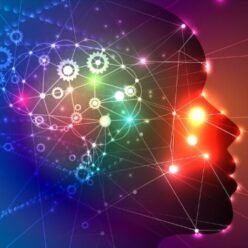With much hard work and support, my daughter Sarah, with brain injury since age 12, has finished her PhD Dissertation and started her professional internship. She has been working hard towards her dream degree, of all things, a PhD in Neuropsychology. In retrospect, this has been a long road, and I must say that I am impressed with her persistence and dedication to higher education and her degree despite her brain injury. I also must say that it has been a long road for me and others who have provided support. We have been dealing with Sarah’s brain injury and its consequences for over 23 years, chapter after chapter, and episode after episode.
In the process of helping Sarah, I have been uncovering and rediscovering my own struggle with my brain injury symptoms. This was the result of several drastic mishaps, including a hit-and-run bike accident 45 years ago, where I was airborne for more than 40 feet, landed on my head without a helmet, and lost my left leg where I was hit. I was told I am lucky to be alive. Now that I have been living through those symptoms for many years, I find myself connecting with my daughter Sarah on a deeper and more intellectual level. Dealing with my own brain injury, while providing support for someone dear with an injured brain, has created many shared experiences.
Brain injury can be either traumatic or acquired. Traumatic brain injury can be the result of a blunt force trauma to the head, with or without penetration. This includes military combat, sports injuries, and accidents such as mine, among other things. Acquired brain injuries include all other causes of brain function disruption, including disease and hereditary condition. In Sarah’s case, a hereditary condition, Arteriovenous Malformation (AVM), led to a brain hemorrhage at age 12, and multiple Gamma Knife radiation treatments over the next 20 years. AVM is a deformation of blood vessels and veins, in her case, in a large area on the left side of her brain. The brain damage resulting from the brain hemorrhage, and the biological and hormonal changes resulting from multiple sessions of Gamma Knife radiation, have contributed to different brain function disruptions. Whether acquired or hereditary, or the result of Covid-19, the biological changes in the brain and the brain function disruptions can sometimes result in significant symptoms, as well as emotional and behavioral changes in brain injury survivors.
Following a brain injury, testing and evaluations by a doctor and neurologist lead to diagnosis and explanation of physical changes. But other emotional and behavioral changes are usually not addressed until specific symptoms arise. By the time symptoms are present, a journey of confusing emotions and behavioral challenges begins. Those challenges can be overwhelming, and a patient may feel like they are living in someone else’s brain or someone else’s body. While there have been advances in medical diagnostics and treatment of injured brains, the challenges in catching up with the emotional and behavioral components remain. For example, there are a variety of brain scan technologies to pinpoint most medical issues with the brain, but we only have a few variations of the same neuropsychological evaluation – and even then, it is not offered or ordered often enough, or in all needed cases.
Our experience dealing with the medical and psychological aspects of brain injury are described from both injured and support perspectives, they are twofold. First, brain injury with immediate consequences, such as Sarah’s, which we have dealt with for 23 years. Second, brain injury of sleeper consequences (as in my case, slowly appearing). These are episodes of real life stories that include failure, resolve, and learning. Emphasis on hindsights and things we should have known earlier are by far the most valuable, and therefore highlighted. We share our decades of personal level experiences in hopes that those dealing with this difficult matter can in some way find it helpful. So, whether you have a brain injury or support someone with the same, we share our stories with a touch of neuropsychology from our recent graduate, all in hopes of moving you forward faster.
